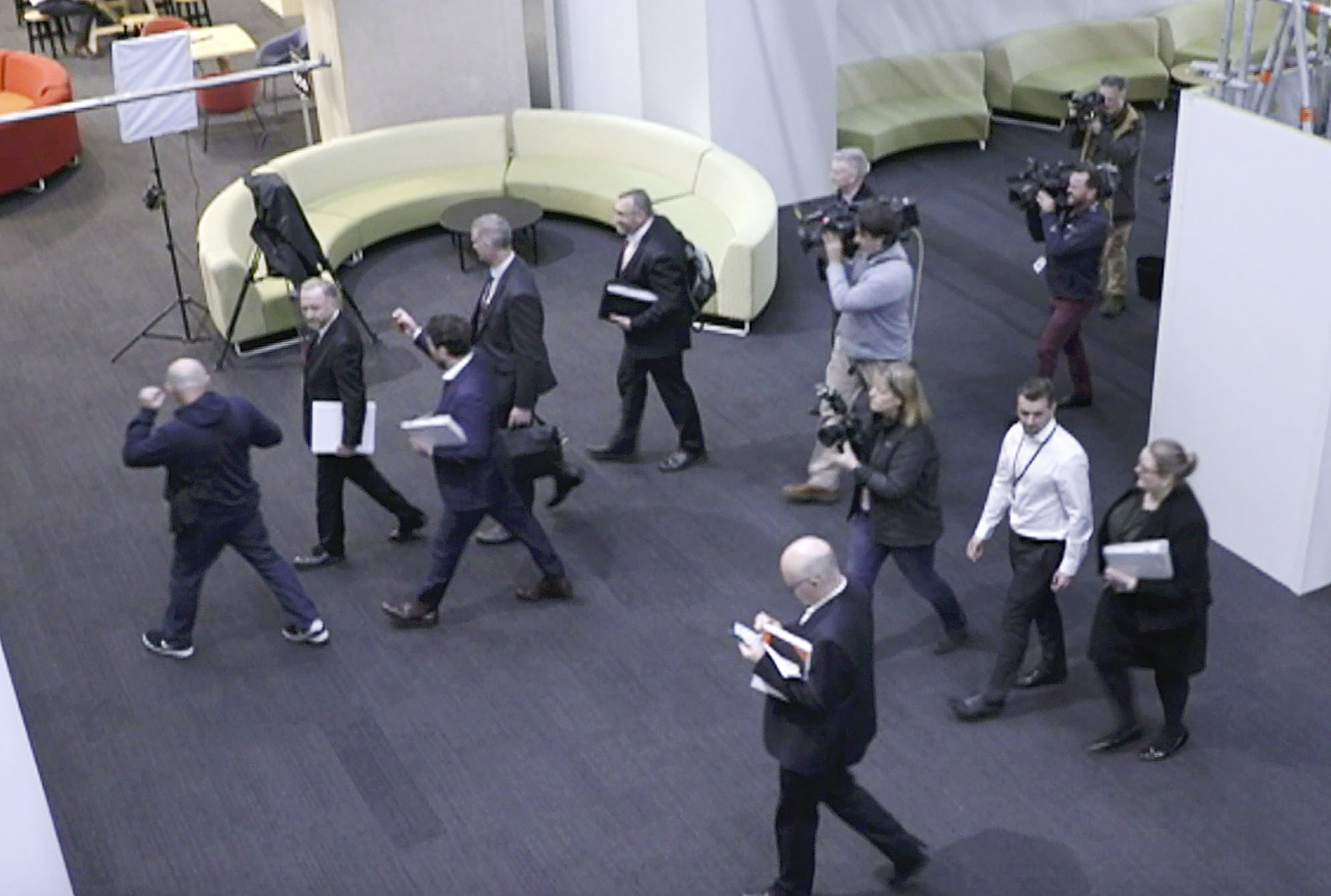On the one hand, Australia lacks media protections of the type found in the United States and Europe that enshrine free speech in human rights charters. On the other hand, it seems to have more national security and anti-terror laws than any other Western democracy. George Williams, dean of law at University of New South Wales, has tabulated around 75 such laws since the terrorist attacks of Sept. 11, 2001. The resulting repressive legal regime gives the executive wide-ranging powers to hide any damaging or embarrassing information by classifying it as secret, and simultaneously to criminalize investigative journalism.
On June 4, seven police officers searched the home of News Corp's Annika Smethurst. The next day, another team rifled through documents at the ABC's Sydney office and ferreted away over 9,000 electronic files. Smethurst had filed a story last year about a proposal to give new powers to a federal agency to engage in domestic spying on citizens. The ABC's crime was to have reported in 2017 on possible unlawful killings by Australian commandos in Afghanistan. Both were serious reports on matters of vital public interest.
In distancing himself from the police raids, Prime Minister Scott Morrison insisted that no one is above the law. Such Pontius Pilate-like washing of hands is silly, historically ignorant and demonstrably false.



















With your current subscription plan you can comment on stories. However, before writing your first comment, please create a display name in the Profile section of your subscriber account page.